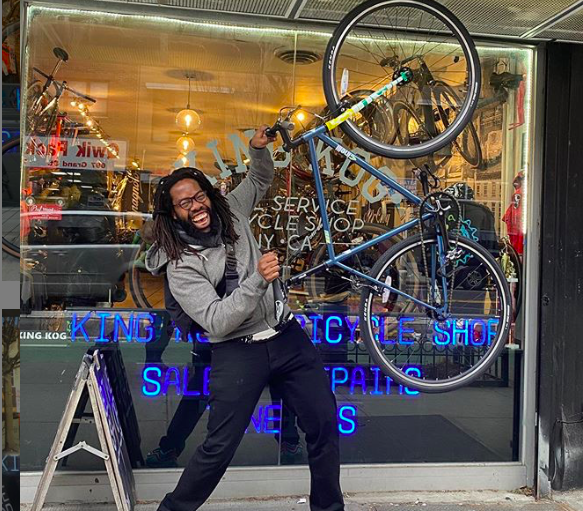The city may not be preparing for the coming carmageddon, but regular New Yorkers are.
Williamsburg bike shop King Kog has reportedly done four years' worth of sales in just the two months since the coronavirus pandemic swamped New York, according to a member of Transportation Alternatives' North Brooklyn Volunteer Activist Committee.
John, a sales clerk at the bike shop, confirmed that two-wheelers had rolled off the shelf since the MTA began asking people to avoid public transportation if they could.
"People are nervous about public transportation and looking for alternatives to that," he said. "And cycling is the best way of getting around, outside the lack of infrastructure we have for it."
John said that King Kog had not only seen a huge influx of people buying bikes from the shop, but that requests for bike maintenance were way up as well. Whether people were bringing bikes in that they'd had stored away in a closet for a few years, or were getting used bikes fixed up, the shop's status as an essential businesses that could stay open during lockdown was extremely clear, especially since King Kog has been helping out first responders as well as nurses and other essential workers.
Without getting specific, John did say that he thought the city could do more to put cyclists first and keep them safe on the roads.
"Last's year's number of cyclist fatalities could be seen as catastrophic," he said about the 28 cyclists who died on roadways last year, an outcome the city will still have to work to avoid.
King Kog isn't the city's only bike shop with lines for repairs and sales.
Looks essential pic.twitter.com/7hFNamONmJ
— Julianne Cuba (@Julcuba) March 19, 2020
Even as King Kog is selling out of entry-level bikes, the bike shop business remains a tough hustle, said owner Anna Maria Wolf.
"In the very long run this will be awesome, and we love to welcome new people on bikes," said Wolf. "But we lost our retail floor by having to spread out our service department for health and safety protocols, and we've taken a hit with bike racing being canceled, rental bikes not getting rented out and without being able to do the volume of service and repairs that we typically do in a summer season."
Supplies of cheaper starter bikes are running low across the country as well, Wolf said, which makes it impossible for a store to rely on continuing to sell the beginner wheels to New Yorkers who are starting to ride.
But the surge in new cyclists is still real. And as the TransAlt volunteers point out, even as City Hall makes its big initiative the installation of nine miles of bike lanes that were already supposed to be installed this year, New Yorkers buying bikes in huge numbers will need support to stay alive out there.
As we continue to reopen, and our streets become clogged, this is not an issue that @NYCMayor and @NYC_DOT can wish away.
— North Brooklyn TransAlt (@NBk_TA) May 15, 2020
The people of New York want bikes to be a part of the urban fabric going forward.
Time to listen to the people.






